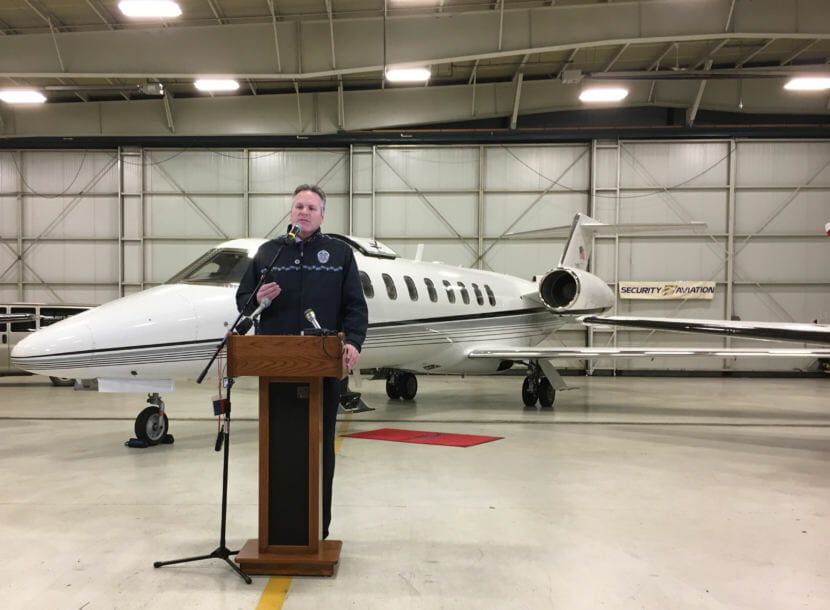
Gov.-elect Mike Dunleavy wants to freeze any new regulations the Walker administration may have imposed in Alaska, going back to Election Day.
Dunleavy said a pause on regulations will give his team an opportunity to assess “whether they’re needed or whether they’ll hurt the economy.”
Dunleavy’s pick to become commissioner of the Department of Natural Resources, Corri Feige, said close examination of regulations that affect developing natural resources is important.
“We need a few days or a few weeks to get our heads around where we’re at now,” Feige said. “I very much appreciate the freeze with regulations, so we have the opportunity to take that pause, like I said, understand where we’re at. And then clearly, in the face of maximizing resource development, and getting the state’s economy back in motion, what needs to be done with those regulations and with the programs that are in place, to ensure that we are executing on that goal.”
Five proposed new rules relate to regulating the sale of marijuana.
Erika McConnell, the director of the state’s Alcohol and Marijuana Control Office, said some of the rules are being sought by businesses. They want to know exactly what the law means.
“Some of the regulations that are proposed actually were proposed because the existing regulation was really too restrictive on the licensee community,” she said.
And she said a lot of work went into these regulations — work on some proposed rules started last year.
Dunleavy’s request for a freeze may not have any real effect on what the Walker administration has planned. Walker spokesman Austin Baird said in an email that there are no new regulations that would restrict resource development.
Baird wrote Walker will “continue to champion responsible development of Alaska’s vast natural resources, from oil and gas to minerals to timber.”
Baird said in its final weeks in office, Walker’s administration will continue working to open the Arctic National Wildlife Refuge, to establish a management plan for the Tongass National Forest, and to continue work on development within the National Petroleum Reserve.
Lieutenant governors oversee the publication and adoption of regulations in Alaska. Fran Ulmer, who served as lieutenant governor from 1994 to 2002, said she’s not aware of any authority to freeze regulations. In an email, Ulmer noted that many regulations have nothing to do with economic growth.
But John Lindback, who served as Ulmer’s chief of staff, said freezes at the start of administrations are not unprecedented. He’s also worked with state governments in Oregon and other states. He said he’s seen governors seek a pause to new rules before.
“I sort of saw it all when I was in Alaska,” he said. “We had travel freezes and, you know, new hiring freezes and regulation freezes and you know it doesn’t take long before all those freezes start to melt as the new administration gets in there and gets more comfortable. You know, they’re new, and so they need a chance to catch up, and I don’t find new governors coming in and doing that kind of thing particularly alarming.”
It’s not yet clear exactly which regulations Dunleavy’s freeze will cover. There are four rules that are already published, but which won’t go into effect until after Dunleavy is sworn in on Dec. 3.
And there are eight rules that the state has opened for comment from the public, but which haven’t been adopted yet.
Alaska’s Energy Desk’s Elizabeth Harball contributed to this report.
Andrew Kitchenman is the state government and politics reporter for Alaska Public Media and KTOO in Juneau. Reach him at akitchenman@alaskapublic.org.




